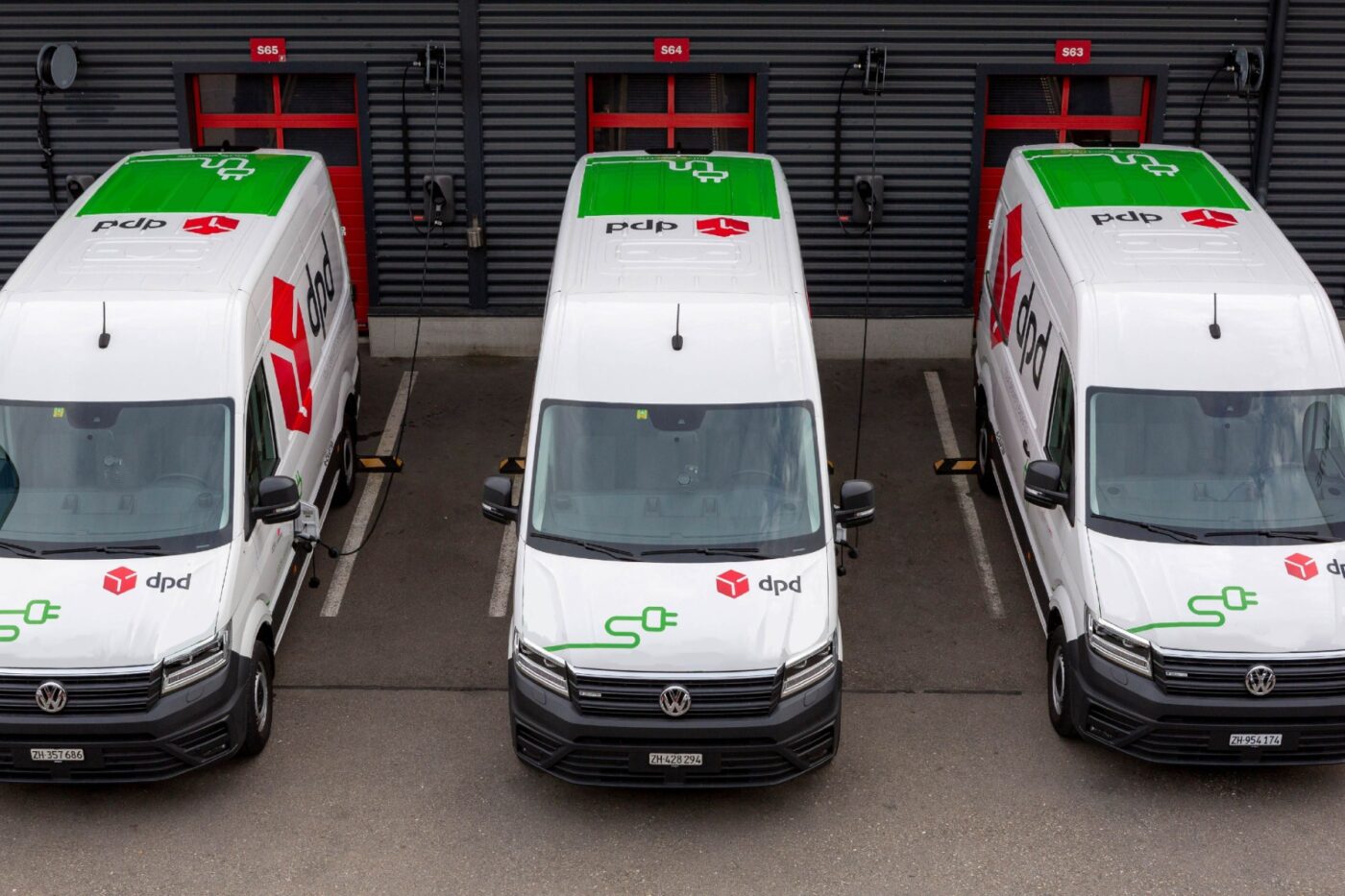DPD fleet in Basel tests V2G
The TEC-OFF research project focuses on the DPD electric vehicle fleet in Basel as a flexible storage system for the electricity grid. “TEC-OFF” stands for “Techno-economic grid connection optimization for electric freight fleets” and is project is supported by the Swiss Federal Office of Energy (SFOE).
As in other V2G (vehicle-to-grid) projects, the vehicle’s batteries are used as storage to be accessed by the grid through bidirectional chargers and vehicles capable of bidirectional charging. The advantage of bidirectional charging with fleets, is that they represent a significant, calculable number of batteries to balance grid functions.
“The crux of decarbonizing transport today is no longer the vehicles, but the power grids. The challenge is to charge a large number of vehicle batteries in the same place at the same time. Because the expansion of the infrastructure is complex and expensive, innovative solutions for optimizing electricity consumption are becoming increasingly important,” say the initiators of the project. Researchers from the ZHAW School of Engineering are assisting the parcel service provider DPD with the field test.
“Our aim is to deploy our fleet of over 800 vehicles in such a way that we can optimise electricity costs, avoid expensive grid expansion and contribute to achieving Switzerland’s energy targets,” says Ville Heimgartner, Senior Innovation Project & Sustainability Manager DPD Switzerland. The Basel Wolf project location was chosen because it offers a realistic analysis and pilot environment with the DPD Green City Hub and the former Smart City Lab Basel.
In addition to bidirectional charging, TEC-OFF is investigating other measures to optimize the overall system, such as V1G, i.e. demand-based charging of vehicles distributed throughout the day. The project, which will run until Q4 2025, will also provide insights into the conditions under which a logistics fleet can be integrated into a group of buildings or companies for self-consumption. To ensure the cost-effectiveness of the solutions, the project participants are also planning to develop a simulation model that calculates the total and life cycle costs.
The project is supported by the mobility research program of the Swiss Federal Office of Energy (SFOE) and by a consortium that includes the INE Institute for Sustainable Development at the ZHAW School of Engineering and the companies sun2wheel, Novatlantis, IWB and SBB Immobilien Development. Armasuisse, Designwerk, Evtec, Galliker Transport, CKW Gebäudetechnik, Lucerne University of Applied Sciences and Arts and PostBus are also represented in an advisory group.
DPD is one of the companies taking the lead in the switch off fossil fuels with their fleets globally. In Switzerland, this time last year, the delivery service provider announced it was decarbonising heavy transport across a trans-alpine route.





0 Comments